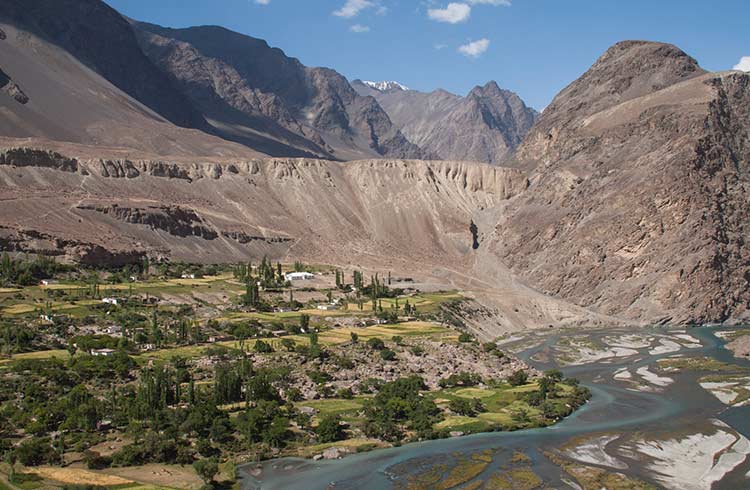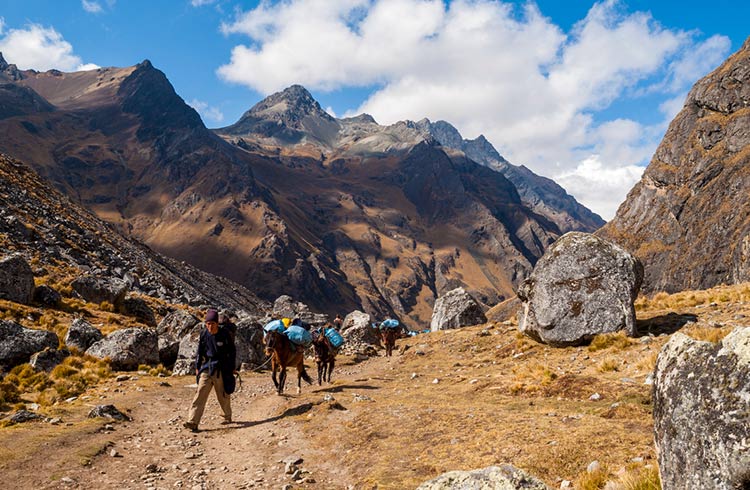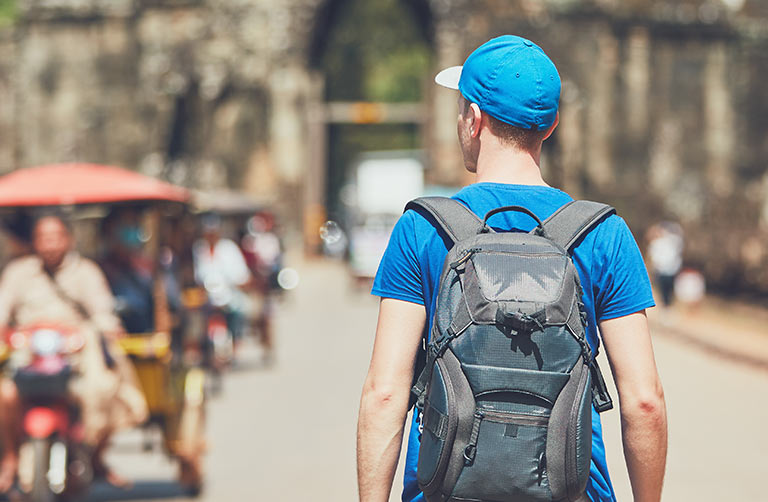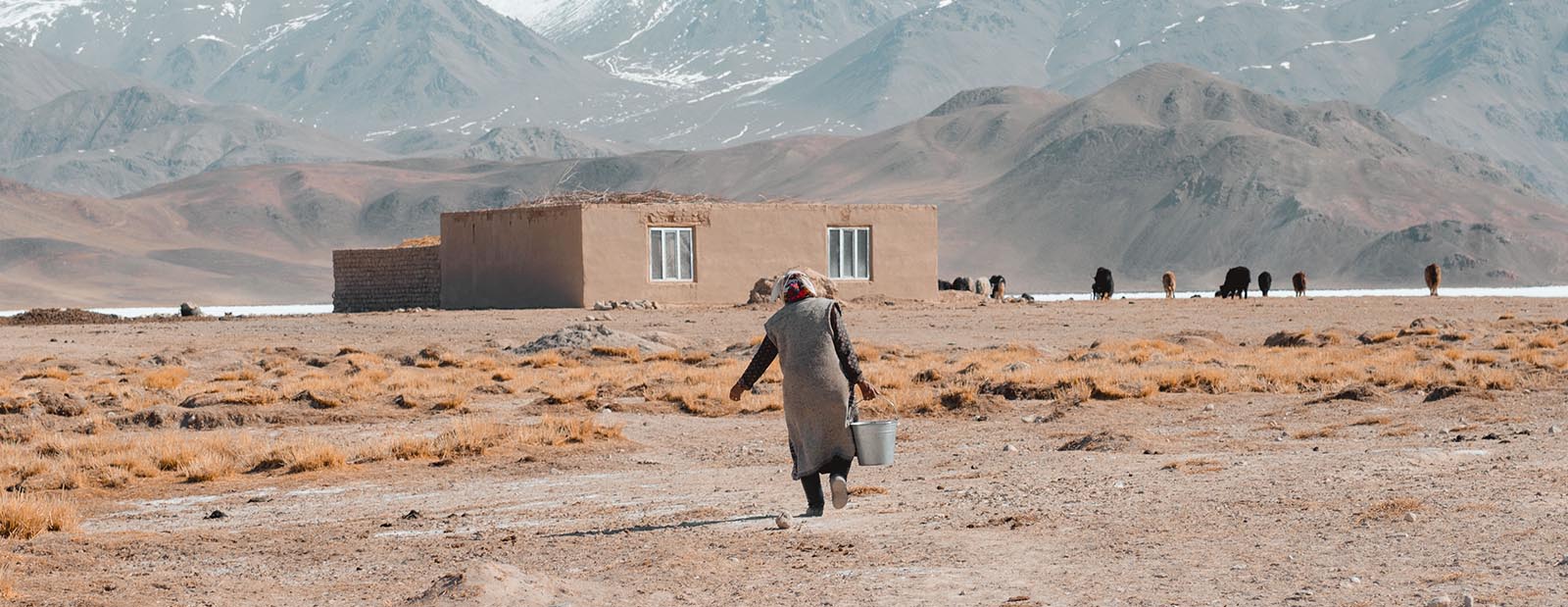Is Tajikistan Safe to Visit? Travel Safety Tips
Tajikistan is still a relatively off-the-beaten-path destination for backpackers in Central Asia. So, just how safe is it for travelers? Here's what you need to know.
 Photo © Getty Images/Evgenii Zotov
Photo © Getty Images/Evgenii Zotov
Tajikistan is the smallest and poorest republic in Central Asia. It's bordered by Afghanistan, China, Uzbekistan, and Kyrgyzstan. It is 93% mountainous and offers some of the most daring trekking on the planet and one of the world's best road trips – the Pamir Highway. But is it safe?
Once part of the Soviet Union before gaining independence in 1991, Tajikistan remained largely off the tourist radar. The 1990s, which could have brought hope and freedom, instead delivered a civil war that caused significant devastation and set the country back considerably.
The good news is, yes, it is safe for travelers. With a relatively low crime rate, an increasing range of homestay accommodations, a friendly population, and a government less daunting than some neighboring countries, Tajikistan is eager to welcome travelers. As a result, it is now easier to navigate.
- Who to call for help in Tajikistan
- Is terrorism a threat in Tajikistan?
- Border safety
- Police corruption and bribery
- Cultural etiquette in Tajikistan
- Local knowledge
- Drug problems
- Transport safety in Tajikistan
- Airport scams at Dushanbe International Airport
- Health and hygiene tips
- So, just how safe is Tajikistan for visitors?
Who to call for help in Tajikistan
- Fire and rescue services: Call 01
- Medical emergencies: Call 03
- Police: Call 02
Is terrorism a threat in Tajikistan?
There is a small but growing threat of terrorism in certain areas of Tajikistan. The Rasht (Gharm) Valley is a known flashpoint, and taking a local guide in this region is advisable.
More concerning are the sporadic, often unexplained attacks that occasionally occur in the capital, Dushanbe. Some have targeted places frequented by expatriates and foreign travelers, such as nightclubs and restaurants. While these have been small-scale so far, the trend is increasing. The Tajik government sometimes conducts counter-terrorist operations on the outskirts of Dushanbe in response.
Border safety
Areas bordering Afghanistan, Uzbekistan, and Kyrgyzstan may have unexploded mines, typically marked. These areas should be avoided. Check your government travel advisory, as insurgency activity can affect security. In some border regions, only a river separates two countries.
Is Dushanbe safe?
Dushanbe, the capital, has a different atmosphere at night. While daytime sees strolling women, laughing children, and old men sipping tea at cafes, the streets become empty after dark. Unsafe drivers who are often under the influence, make crossing the main drag, Rudaki, perilous.
Official crime levels in Dushanbe are rated 'moderate to high,' but the deserted streets and poorly lit roads off Rudaki add to the unease at night.
Avoid walking through Victory Park or Children's Park at night, as this is often an area for petty crime.
Police corruption and bribery
Low salaries and inadequate training often result in a lack of professionalism among the police, who are often more concerned with coercing bribes from drivers. Police occasionally stop tourists to check documents. Always carry a photocopy of your passport, leaving the original in a secure location.
If approached by the police, always ask to see their ID and do not sign any paperwork you cannot fully understand.
Cultural etiquette
Modern Tajikistan is a multi-ethnic state with 14 different ethnic groups. Most citizens are Muslims – 95% Sunni and 3% Shia – while Pamiris are almost all Ismaili Muslims. so dress conservatively and follow usual precautions. If you're a solo woman traveling, mentioning a husband (even if fabricated) can be a useful deterrent for any unusual harassment.
Local knowledge
Smoking is prohibited in many public places.
Do not be tempted to buy gems in Tajikistan. In the Pamirs, you may be offered 'rubies' that are more likely spinel from local mines. It is illegal to export or possess unprocessed stones and metals without special permission. Even if you have a receipt confirming the legal purchase, the items must be declared upon departure.
Power cuts, poorly lit roads, and buildings mean it's wise to carry a torch. Uncovered manholes in the capital can pose a danger; one traveler recently broke her leg falling into one, cutting her trip short.
Drug problems
Tajikistan is on the heroin highway from Afghanistan, with drugs then transported through Russia and into Europe. This has resulted in a serious drug problem and a growing HIV infection rate. Criminal gangs operating the drug trade are unlikely to target travelers, but it's essential to be aware of the issue if traveling near the Afghan border. Bear in mind that the temptation of making fast money has led many border guards and police to become involved in the trade.
Transport safety in Tajikistan
Getting around Tajikistan is one of the biggest challenges due to the lack of a train system, few public buses or coaches, and very expensive petrol prices. The plane linking Dushanbe to Khorog is a tiny Anatov 28 that only takes off if visibility is clear.
Most travelers will hire a car and driver during their time in the Pamirs. Tajikistan does not have a fully operational public transport system yet, so travelers are somewhat dependent on making their own way. Avalanches are common in the mountains during winter, and in summer, roads are often washed away by meltwater. Flexibility is key, and always check the vehicle before hiring.
Take local advice in the Tavildara region of central Tajikistan, as some minefields dating from the civil war remain in the mountains. Local vehicles are poorly maintained, and driving standards are basic. Petrol stations are rare outside towns, and there are no breakdown services.
Taxi troubles
Unlicensed taxis often meet shared taxis (marshrutkas) arriving in Dushanbe from other destinations in Tajikistan. Do not allow the driver's friends into the car under any circumstances, even if it means getting out.
Men should be aware that some cheaper hotels in Tajikistan may target them with prostitutes. Dior and Port Said nightclubs sometimes attract sex workers looking for foreign clients.
Airport scams at Dushanbe International Airport
Shakedowns at Dushanbe International Airport are not uncommon. One traveler reported being fined $700 for not having her paperwork in check. Be very careful if you pass through the airport with a lot of cash and do not verbally confirm how much you're carrying.
Health and hygiene tips
- The number one health rule in Tajikistan, especially in Dushanbe, is not to drink the water. Boiled water is generally safe, but there remains a serious risk of rust and typhoid.
- The Prospekt Clinic in Dushanbe, with English-speaking doctors, is a good option if you need medical assistance.
- Altitude sickness is a real threat if traveling above 4,000 meters. Public toilets are filthy at best, so carry your own toilet paper and hand sanitizer.
- There is a low risk of malaria in the southern border areas, particularly around the Khatlon region, and occasionally in central areas, including Dushanbe.
So, just how safe is Tajikistan for visitors?
Tajikistan offers breathtaking landscapes and unique cultural experiences, but travelers should be aware of potential safety concerns and prepare accordingly. With proper precautions and awareness, this is a rewarding destination for adventurous travelers.
Related articles
Simple and flexible travel insurance
You can buy at home or while traveling, and claim online from anywhere in the world. With 150+ adventure activities covered and 24/7 emergency assistance.
Get a quote


No Comments